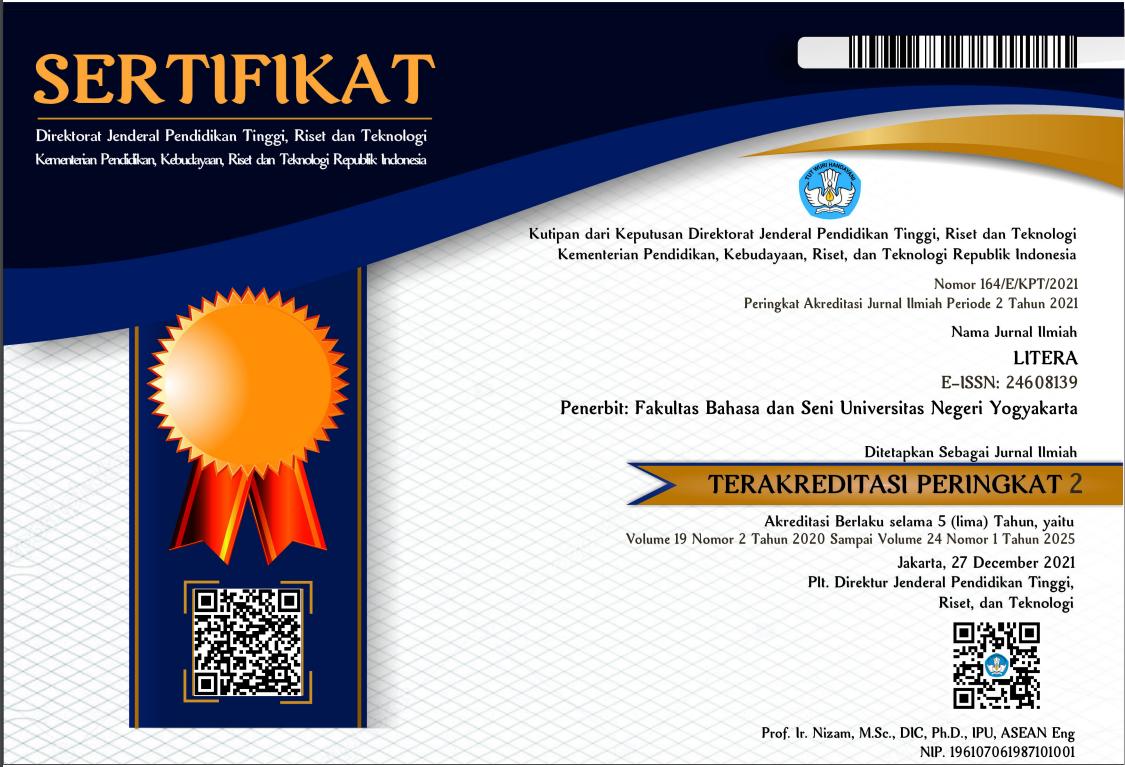PERLAWANAN ALAM TERHADAP KOLONIALISME DALAM NOVEL POHON JEJAWI KARYA BUDI DARMA
Abstract
This study aims to describe: (1) how colonial ecocriticism is represented, and (2) what
text ideologies are like. The short story Pohon Jejawi presents a Dutch colonial setting in
Surabaya in the 1930s. The main character was Henry van Kopperlink, a new mayor of
Surabaya, who felt disturbed by the existence of a jejawi tree, which was full of mystical
myth and mystery. The mystical old tree growing in Kedung Gang Buntu was unable to be
chopped down several times because the birds hiding in its dense leaves made every effort
to cut it down fail. Using the green studies perspective, this short story presents colonial
masculinity represented the main characters; it is unable to be established in Surabaya.
The tropical nature represented by the jejawi tree is capable of making the colonial rust
en orde chaotic. In Pohon Jejawi, Budi Darma tells that colonialism is opposed not only by
the indigenous West Indie people but also by the mysticism of the jejawi tree.
text ideologies are like. The short story Pohon Jejawi presents a Dutch colonial setting in
Surabaya in the 1930s. The main character was Henry van Kopperlink, a new mayor of
Surabaya, who felt disturbed by the existence of a jejawi tree, which was full of mystical
myth and mystery. The mystical old tree growing in Kedung Gang Buntu was unable to be
chopped down several times because the birds hiding in its dense leaves made every effort
to cut it down fail. Using the green studies perspective, this short story presents colonial
masculinity represented the main characters; it is unable to be established in Surabaya.
The tropical nature represented by the jejawi tree is capable of making the colonial rust
en orde chaotic. In Pohon Jejawi, Budi Darma tells that colonialism is opposed not only by
the indigenous West Indie people but also by the mysticism of the jejawi tree.
Full Text:
PDFDOI: https://doi.org/10.21831/ltr.v13i2.2585
Refbacks
- There are currently no refbacks.
______________________
__________________________________________________________________________________________________
The International Journal of Linguistic, Literature, and Its Teaching at http://http://journal.uny.ac.id/index.php/litera/ is licensed under a Creative Commons Attribution-ShareAlike 4.0 International License
__________________________________________________________________________________________________














